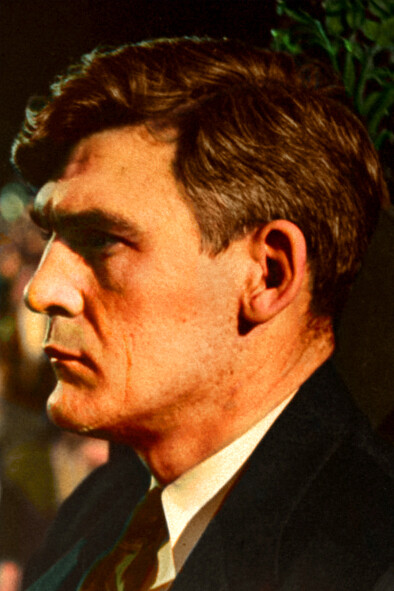The Pittsburgh Press (October 23, 1944)

Republican Ball backs Roosevelt
Foreign policies cited in stand
Senator Ball
Washington (UP) –
Senator Joseph H. Ball (R-MN) said today that on the basis of President Roosevelt’s stand on foreign policy “I shall vote for and support Mr. Roosevelt” in the Nov. 7 election.
Mr. Ball, a strong advocate of close international cooperation to maintain peace, had posed three questions concerning that issue and said the answers to them would determine whether he would vote for Mr. Roosevelt or for Governor Thomas E. Dewey, the Republican presidential nominee.
Isolationists assailed
Mr. Ball said in a prepared statement:
President Roosevelt in his Saturday night speech capped this record [American leadership in the war] of action by meeting squarely and unequivocally the two vital and controversial issues on which the isolationists kept us out of the League of Nations and will fight our entry into the United Nations security organization.
He insisted that the United Nations organization be formed without delay, before hostilities cease, and that it be granted power to use military force against future aggressors without requiring individual approach of each member nation.
Governor Dewey has opposed delay but has not met squarely the second vital issue. He has spoken for a strong international security organization, but in each speech has so worded his commitment that both isolationists and internationalists could find comfort and support in what he said. A substantial part of his support is talking straight isolationist doctrine to the country.
‘Miraculous’ war record
Senator Ball said Mr. Roosevelt “is in a position to receive a clear and tremendously forceful mandate on this great issue from the American people,” but “Governor Dewey’s mandate would be confused and weak and his leadership hampered by a serious division among his own supporters.”
The “miraculous” American war record, he said, proved that the country is stronger than ever despite “changes in federal policy and administrative mistakes the past 12 years.”
Senator Ball said:
It can and will survive domestic blunders, but neither our enterprise system nor our democratic institutions will survive a Third World War. Therefore, the foreign policy which the American people choose for their government in this election becomes all important.
‘Efficiency needed’
Governor Dewey, he said, has not reversed or abandoned “any major objective or policy of the Roosevelt administration,” but promises more efficiency and a friendlier attitude toward business. Both are needed, he added, but the war is convincing proof that domestic issues cannot be separated from international issues, that “what America does at home has terrific repercussions abroad, and that the solutions reached for international problems will shape and limit our choices at home.”
Senator Ball said:
The Roosevelt administration, with some mistakes and timidity, has by its action reversed the isolationist foreign policy the United States followed for two decades. It has established American leadership of the United Nations in fighting this war and developing a world security organization to maintain peace.
Mr. Ball was said to have reached his decision after listening to the foreign policy speeches that the two candidates delivered last week – Governor Dewey before the New York Herald-Tribune Forum Wednesday and Mr. Roosevelt before the Foreign Policy Association in New York Saturday night.
Still a Republican
It was emphasized that Mr. Ball will not in any sense renounce his party – he is and will remain a Republican in principle and a foe of what he calls bureaucratic bungling on the home front by the Roosevelt administration.
But to him, a strong, forward-looking foreign policy, calling for vigorous U.S. participation in a world peace organization, transcends domestic issues in this election.
Three questions
Mr. Ball’s decision was based on a test that he proposed for both candidates – a test dealing solely with the proposed world organization and consisting of these three questions:
-
Will you support the earliest possible formation of a United Nations security organization and U.S. entry therein before any final peace settlements in either Europe or Asia?
-
Will you oppose any reservations to U.S. entry which would weaken the power of the organization to act to maintain peace and stop aggression?
-
Should the vote of the U.S. delegate on the World Council commit an agreed upon quota of our military forces to stop aggression or should the delegate be compelled to get Congressional approval in each instance?
Both Governor Dewey and Mr. Roosevelt subsequently endorsed formation of the organization before hostilities end, but the President went beyond Mr. Dewey’s stand by urging that the American delegate be empowered to place U.S. forces in the path of future aggressors without getting Congressional sanction in each instance.
